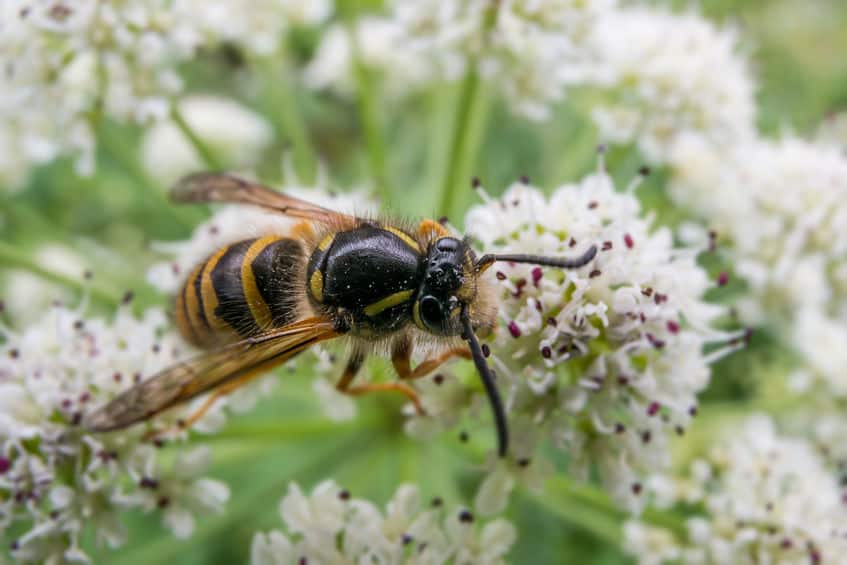We know bees are good pollinators, but what about wasps.
Wasps are important pollinators as they move from plant to plant feeding on the nectar just as bees do. In the process, they facilitate the fertilization of plants. Some plants such as fig trees and helleborine orchids have evolved to be almost exclusively dependent on wasps.
Let’s take a closer look at the role of wasps.
Do wasps pollinate?
Wasps are important pollinators. When we think of pollination we think of bees, but wasps also love nectar, produced by plants to attract insects. Although most wasp species do not use the nectar to produce honey, they nevertheless will feed off the nectar and so in the process pollinate plants.

Without pollinating insects such as bees and wasps, flowers and plants would not be able to reproduce. This really is a vital role fulfilled in a significant part by the wasp population.
Fig Trees
The fig wasp is an example of a wasp that has a particularly important role. They gain their name from the fact that they are actually the only pollinator of fig trees. So, without this unique wasp, we wouldn’t even have figs.
Fig wasps are solitary wasps so don’t live in large colonies. They use figs as places to lay their eggs. The larvae develop in the fig. There is a catch, however, if the fig happens to be female the wasp will become trapped and fully dissolved inside the fig. In the process, they pollinate the plant.
In addition to figs, other plants such as hogweed, ivy, (Source: Richard jones), and helleborine orchids are predominately pollinated by wasps. Helleborine orchids actively attract wasps by releasing scents that wasps associate with food. The nectar on these plants have evolved to make the wasps drowsy and so make them spend more time on the plant so making them far more efficient pollinators for the plant.
Honeydew
Honeydew also provides important food for wasps. It is sugar-rich and sourced from the sap in the plants. Some insects feeding on this sap such as aphids will also secrete honeydew making them very appetizing for wasps. The wasps drawn to the plants remove pests whilst also pollinating. For this reason, wasps can be considered a gardener’s friend.
Studies have shown that wasps will preference sugar before protein when presented with the choice, although wasp larvae are dependent on wasps returning to the nest with protein sources. While nectar is highly appealing to wasps, given the opportunity wasps will be drawn to human sources of sugar such as jam and fruit juice with their higher sugar content.
Bees use nectar to make honey, what about Wasps?
Most wasps do not use the nectar to make honey, but rather they will consume it on the spot. Wasp larvae are carnivores so wasps prey on insects to feed to wasp brood. This also has the benefit of ridding plants of invest pests that would otherwise east them. such as caterpillars and aphids. Some wasps, however, do make honey such as the Mexican honey wasp. See this article.
